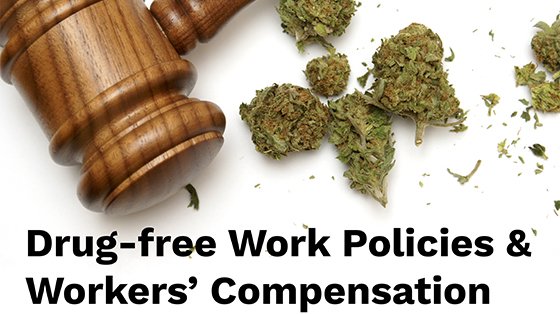Over the past ten years, there has been a concerted effort between the government, businesses, and unions to curtail drug and alcohol use on job sites. These efforts have culminated in the creation or modification of formal drug policies, OSHA safety rules, and workers’ compensation statutes.
In all “drug-free workplaces,” employers can adopt formal rules and policies regarding the use of alcohol or non-prescribed controlled drugs in the workplace. When an employee is injured at work, if that employee is believed to have violated any of those policies, he or she may be required by law to take a post-accident drug test in order to receive workers’ compensation benefits. So the question becomes, “What are the consequences if a worker is injured on a job site and tests positive for alcohol or non-prescribed drugs?” The answer to this question is found both in the formal policies, as well as the Missouri workers’ compensation statutes.
Positive Test Results
The Missouri workers’ compensation statutes (Sec. 287.120. 6) govern the benefits the employee is entitled to receive after an injury. If an injured employee is temporarily and totally disabled from his or her injury, the worker is entitled to weekly benefits until reaching a point of maximum medical improvement. There are also benefits for any permanent partial disability. However, if the injury was “sustained in conjunction” with the use of alcohol or non-prescribed controlled drugs, benefits will be reduced by 50 percent. Moreover, if the use of alcohol or non-prescribed drugs is the “proximate cause” of the injury, benefits will be forfeited.
Refusal to Test
A worker has the option of refusing to take a test. Under most substance abuse policies, the refusal to take a drug test is treated as a positive result. Under the workers’ compensation statutes, a “refusal to test” results in a forfeiture of benefits if the employer had sufficient cause to suspect the use of alcohol or non-prescribed controlled substance by the worker, or if the employer’s policy clearly authorized a post-injury testing. It is therefore wise for the injured worker to go forward with testing, otherwise, there is a high risk that all benefits will be forfeited.
Labor Unions
A formal Substance Abuse Program recently introduced through the unions is aimed at promoting alcohol and drug-free work environments, rehabilitating employees that test positive, and reinstating those workers who have completed the rehabilitation process. CICC of St. Louis handles the program that has been adopted by unions, such as the Ironworkers Local Union 396.
The foundation of these substance abuse programs is “the providing of education, assistance to the employees and families, encouraging the employees to seek treatment as needed, and fostering and encouraging an environment which produces a high-skill quality product that is drug and alcohol-free.” To do so, it defines the technical parameters for drug and alcohol testing and defines when testing is to be performed. This program, as well as similar programs adopted by local contractors, usually requires testing after a worksite injury. Then, any employee with a positive test is required to go through a rehabilitation process, including seeing a drug abuse professional. An employee who completes the process is then eligible for rehire after 30 days and a negative test result. Likewise, individual contractors often have policies that mandate termination for a minimum of 30 days.
Marijuana and Legal Remedies
Some substances remain in the human system long after ingestion and will result in a positive test even if the worker is not under the influence of a substance at the time of the test. The most common of these is marijuana, which will cause a positive test for up to four weeks following ingestion. As a consequence, a worker who is injured and tests positive for marijuana may have their benefits reduced by the workers’ compensation insurance carrier based solely upon test results. In these instances, the issue of whether the employee was injured “in conjunction” with the use of marijuana is litigated before an administrative law judge. Usually, toxicology experts are needed to help resolve the issue.
The preservation of a drug-free workplace has strong support on national and local levels. It has been repeatedly demonstrated that a drug-free workplace results in fewer injuries and a more productive worker. In the case of an injury, a worker is usually best served by agreeing to undergo the testing so that benefits will not be forfeited. In the event that benefits are reduced or forfeited, the worker is encouraged to contact an experienced attorney.

